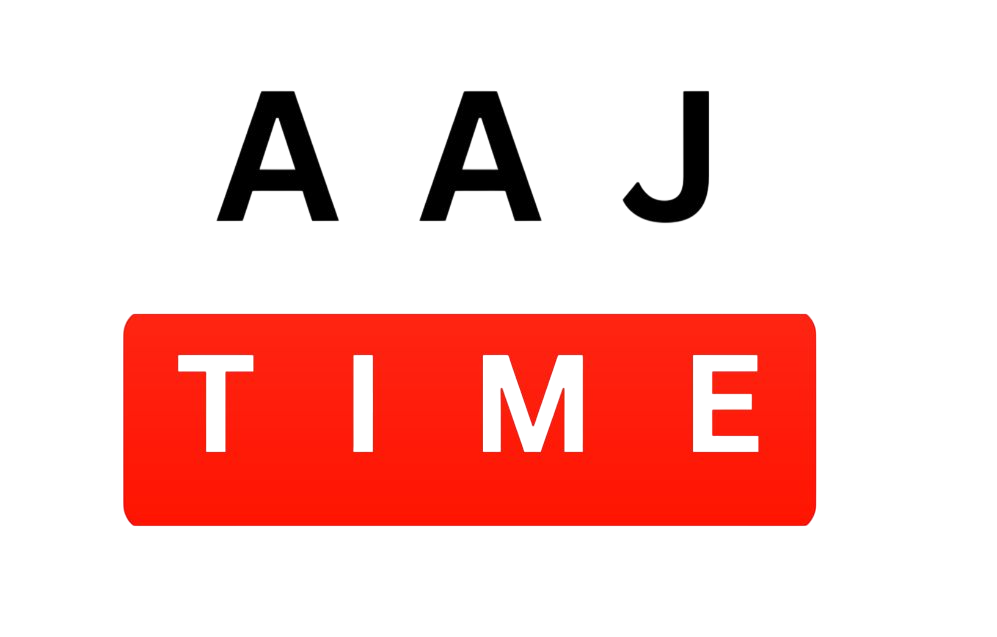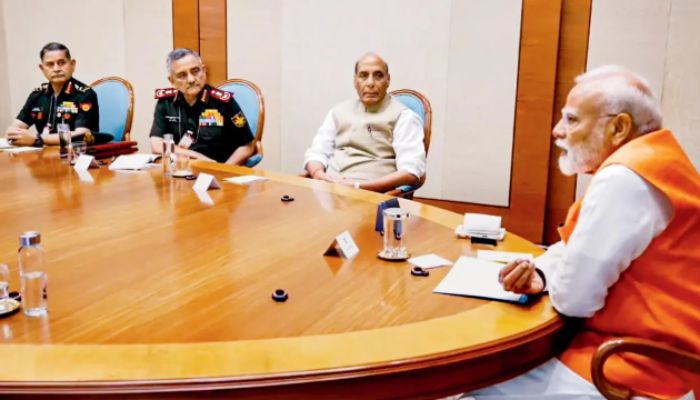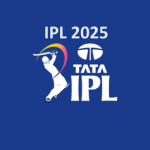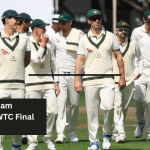The wake of the devastating Pahalgam terror attack, National Security Advisor (NSA) Ajit Doval met with Prime Minister Narendra Modi for the second time in 48 hours on Tuesday morning, sparking speculation about India’s possible military response. The high-level meeting comes at a time of heightened tension with Pakistan and a growing public demand for decisive action against terrorism.
Pahalgam Attack: A Grim Reminder
The April 22 attack in Pahalgam, Jammu and Kashmir, has shaken the nation. The incident, which claimed the lives of 26 people—most of them civilians—is being described as the worst terror strike in India since the 2019 Pulwama attack, where 40 CRPF personnel were martyred. Initial intelligence reports have pointed to the Pakistan-based terror outfit Lashkar-e-Taiba as the prime suspect behind this latest massacre.
The attack targeted a civilian bus that was en route to a pilgrimage site, turning a peaceful journey into a scene of carnage. Eyewitnesses reported indiscriminate firing followed by a grenade blast, leaving dozens wounded in addition to the fatalities. The scale and brutality of the attack have intensified calls for a strong and calculated Indian response.
NSA Doval’s Strategic Briefing to PM Modi
NSA Doval meetings with the Prime Minister, especially two in such quick succession, indicate the urgency and seriousness with which the government is treating the situation. Sources suggest that Doval presented detailed intelligence assessments, including satellite imagery, intercepts, and potential military response options.
Doval, known for his hardline stance against cross-border terrorism, is believed to have emphasized the need for a robust and targeted counter-response. His advice has often played a pivotal role in shaping India’s national security strategies, including during the Balakot airstrikes in 2019, which were a direct response to the Pulwama attack.
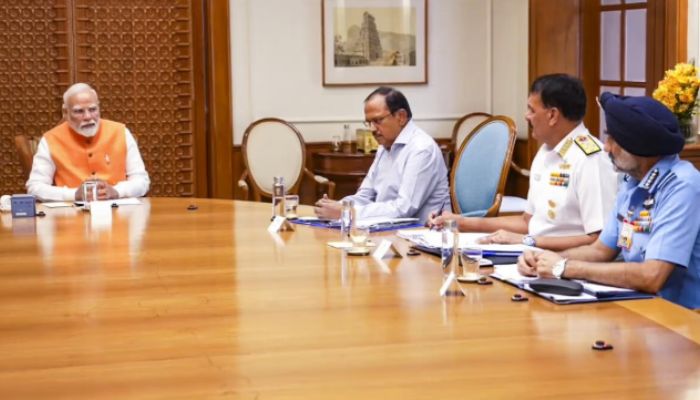
High-Level Military Consultations
In addition to NSA Doval’s briefings, Prime Minister Modi has chaired multiple high-level security meetings. These include discussions with Defence Minister Rajnath Singh, Chief of Defence Staff General Anil Chauhan, and the chiefs of the Army, Navy, and Air Force. The coordination among top military brass points toward the possibility of a well-coordinated and multifaceted strategic response.
Military sources have confirmed that India is considering a range of options, from targeted strikes against terror camps in Pakistan-occupied Kashmir (PoK) to heightened border security and increased intelligence operations. However, officials remain tight-lipped about the specifics, citing operational secrecy and diplomatic sensitivities.
Civil Defence Preparedness: A Historic Move
In a notable development, the government has directed all state administrations to conduct mock civil defence drills—the first such exercise since the 1971 Indo-Pak war. Scheduled to begin within 24 hours, these drills are designed to prepare the civilian population for emergencies, including potential retaliatory strikes or terror threats.
The timing of these drills has further fueled speculation about India’s intent to respond militarily. Analysts believe this could be a part of broader readiness measures to mitigate any fallout from a possible escalation.
Global Reactions and Diplomatic Pressure
Internationally, the Pahalgam attack has drawn condemnation from several countries, including the United States, France, and Australia. These nations have expressed solidarity with India and reaffirmed their support for combating terrorism. However, India is also working the diplomatic channels to ensure Pakistan faces global scrutiny and pressure to dismantle terror networks operating from its soil.
At the United Nations, India is expected to raise the issue strongly, demanding that the international community hold Pakistan accountable for harboring and supporting terrorist organizations.
Public Sentiment and Political Reactions
Back home, public anger is palpable. Citizens have taken to social media, candlelight vigils, and protests across cities to demand justice for the victims of the Pahalgam attack. The hashtag #JusticeForPahalgamVictims is trending, reflecting a nationwide call for retribution.
Political leaders from across the spectrum have condemned the attack, though there have been sharp differences over how the government should respond. The ruling Bharatiya Janata Party (BJP) has promised a “fitting response,” while opposition parties have urged restraint but demanded transparency and accountability from security agencies.
India’s Next Move: Decisive Yet Calculated
As India stands at a crossroads, the government is under immense pressure to deliver a response that is both effective and responsible. While public sentiment favors strong action, experts caution against any hasty moves that could escalate into a full-blown conflict.
With PM Modi’s leadership team in constant consultation and security forces on high alert, India’s next move will likely balance tactical precision with strategic foresight. Whether that translates into covert operations, diplomatic isolation of Pakistan, or an overt military strike remains to be seen.
